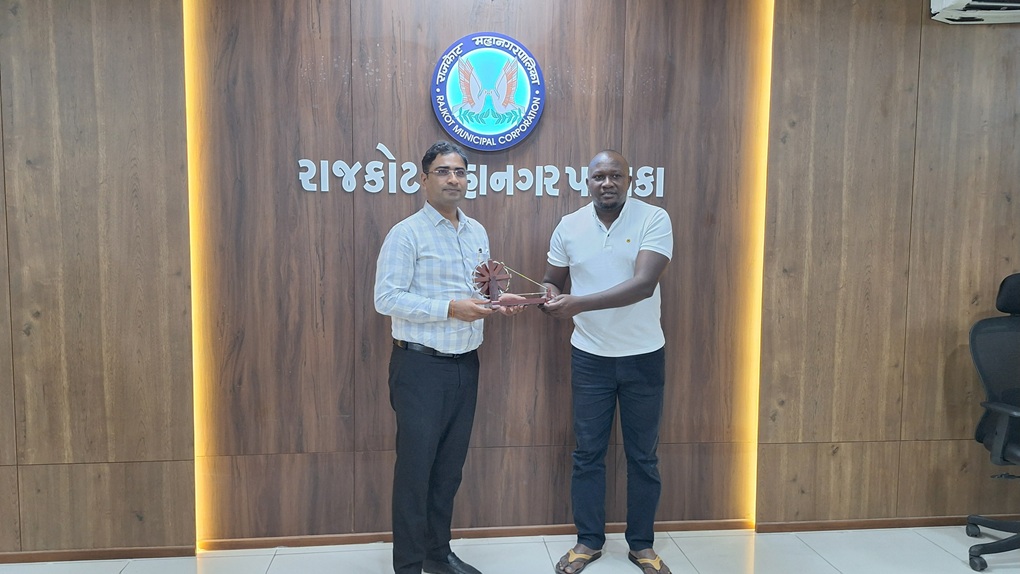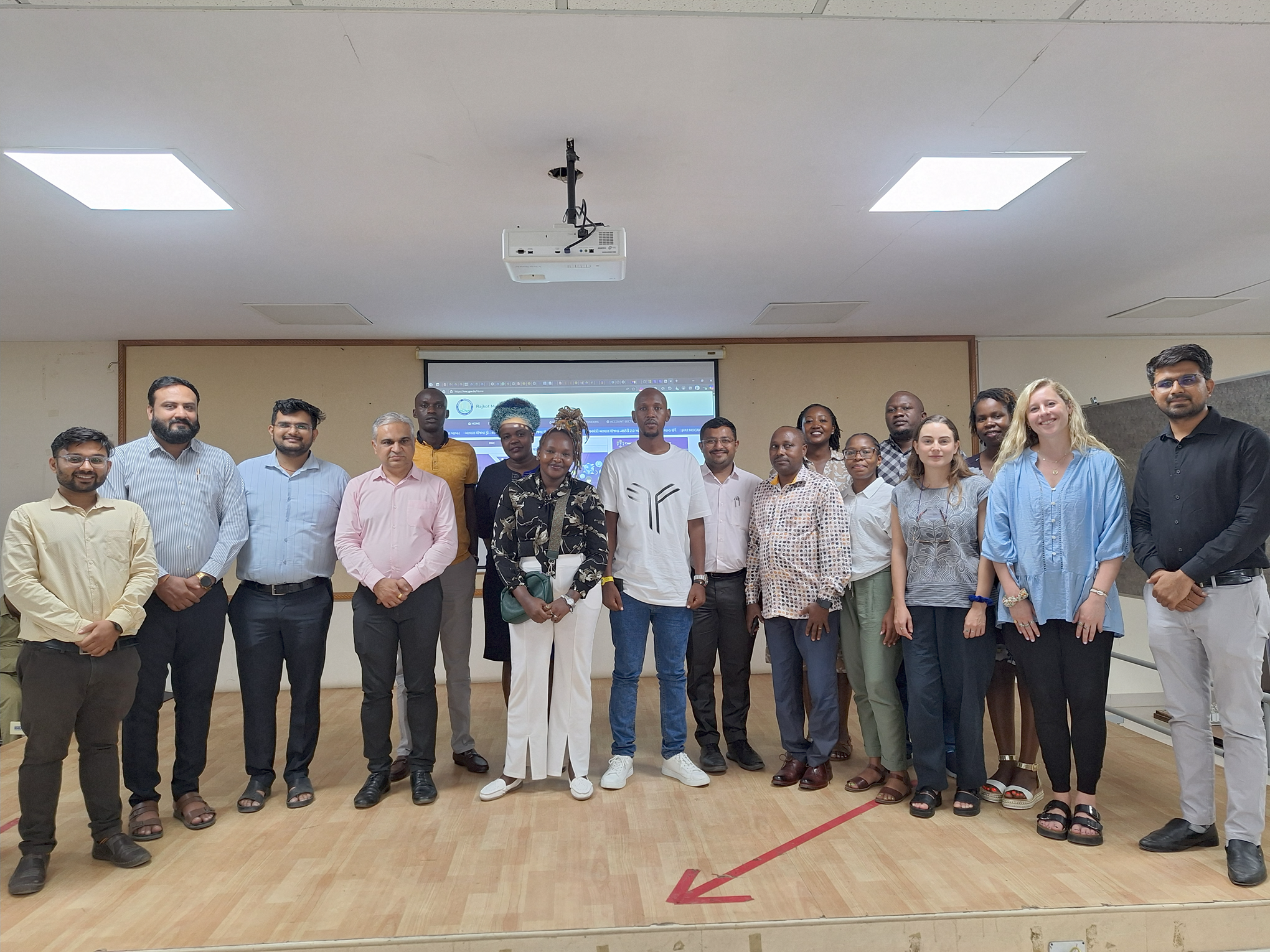Learning Heat Resilience Strategies Amid Rising Global Temperatures: Delegation from Nairobi Visits Rajkot

Over the last year, Kenya has witnessed unusually high temperatures and extreme heat, making it imperative for the country to implement strategies to avoid adverse impacts on public health. In this context, the city of Nairobi plans to develop its first heat action plan to address the long term impacts of heat in the city. The city had expressed interest to learn from the experiences of the city of Rajkot in India, which has already developed a Framework for Urban Cooling Plan..
Supported by the CLimate Adaptation and REsilience, CLARE-R4I Opportunities Fund, a government delegation from Nairobi, Kenya visited Rajkot, India from 26-30 May 2025 to learn the process of preparing ‘Framework for Urban Cooling Plan’ and experience the practices for heat resilience in the city through site visits and discussions. The delegation aimed to explore the possibilities of adopting and integrating some of these approaches into Nairobi’s heat action planning.
As Asia’s knowledge partner under the CLARE Opportunities Fund, ICLEI South Asia along with SouthSouthNorth (SSN), who is managing the CLARE R4I Hub, facilitated the peer exchange visit for the officials from Nairobi City County Government, Kenya Meteorological Department, the Ministry of Environment of Kenya, and the University of Nairobi. The CLARE R4I Hub is supporting Gujarat Mahila Housing SEWA Trust for the preparation of a ‘Climate resilient, Gender Equitable & Inclusive Plan for Street Vending Zones in Rajkot.’
Officials from the Kenyan government met with the Municipal Commissioner of Rajkot Municipal Corporation, Tushar Sumera, IAS, and the Deputy Municipal Commissioner of Rajkot Municipal Corporation, Chetan Nandani, to gain insights into the city’s strategies for heat resilience.
The discussion covered key topics, including the heatwave alert system, public awareness initiatives with NGOs, interdepartmental coordination, and the integration of health services. Prior to their visit, ICLEI South Asia conducted a virtual knowledge sharing session on the Urban Cooling Framework prepared for Rajkot and on dissemination of early warnings through information, education and communication activities and on-ground support by the Medical Officer of Health as well as the Epidemic Medical Officer of Rajkot Municipal Corporation (RMC).
ICLEI South Asia, in close coordination with RMC, also facilitated visits to the Integrated Command and Control Centre, Smart Ghar-III (Social Housing), Tertiary Wastewater Treatment Plant (Smart City), Atal Sarovar, Smart City Green field area, Urban Forest (Ram Van), Mahatma Gandhi Museum, Heat Illness Ward at Pandit Dindayal Upadhyay Hospital, which showed the delegation the variety of actions being undertaken to address heat and urban resilience in general. A virtual knowledge sharing session was also conducted by the India Meteorological Department, Gujarat, regarding the observations and forecasts carried out as part of the Early Warning Services.
Through this visit, the delegation from Kenya gained valuable insights into formulating policies to address urban heat, as well as enhancing the potential for adoption of the smart technology for heat resilience.


